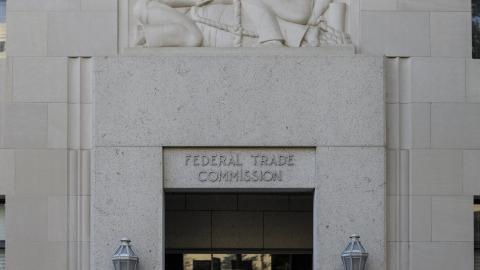At first blush, the last few weeks seemed to have treated Microsoft’s legal team well. A federal district judge struck down the Federal Trade Commission’s attempt to block the company’s merger with game-maker Activision. The Ninth Circuit affirmed the ruling. And the chair of the FTC, Lena Khan, was grilled on Capitol Hill.
At least for now, it appears that the Microsoft-Activision deal will likely close. But Microsoft’s war with the FTC is far from over. A clear bullseye remains painted on the American tech firm’s back.
Just hours before Chair Khan testified on the hill, the Washington Post published a leaked story that the FTC is investigating OpenAI. This, of course, is the same OpenAI in which Microsoft is the largest investor.
As part of this leak, the Washington Post released a non-public, twenty-page, redacted Civil Investigative Demand Letter from the FTC. The letter requests practically all business information from OpenAI, including all shareholders, revenue sharing agreements, and “all licensing, marketing, joint venture, and research and development agreements.” Microsoft is likely to appear often in such documents.
This may just be coincidental timing. But major newspapers like the Washington Post do not typically leak such information from the FTC every day. Nor does it regularly publish such extensive and complete non-public documents—particularly within a few hours of the FTC’s chair testifying on Capitol Hill.
Of course, the group least likely to see this as mere happenstance is Microsoft’s legal team. Since the company’s announced acquisition of Activision-Blizzard in January of last year, the FTC has been a particularly sharp thorn in Microsoft’s side.
Usually when businesses propose a merger the size of Microsoft-Activision, they submit information to one of America’s two federal antitrust authorities: the FTC or the Department of Justice’s Antitrust Division. Within a predictable period of time to review the information—usually a handful of months—the FTC or DOJ will then notify the merging parties that either: (1) they can close without federal antitrust opposition; (2) they can close without federal antitrust opposition only if certain conditions and divestitures are agreed to; or (3) the DOJ or FTC intends to challenge the proposed merger in federal court.
Microsoft’s purchase of Activision has played out much differently. Rather than follow the playbook detailed above and decide whether the agency wished to challenge the acquisition in a timely manner, Chair Khan instead decided to designate the merger to be reviewed by an internal administrative law judge. Nearly half a year later, the FTC sought a restraining order in federal court to enjoin the merger from being finalized. This is the very same legal maneuver that was just blocked by a federal judge.
FTC proceedings before ALJs usually have no specific timelines. Scheduled to begin this August regardless of whether or not the merger has been consummated, the administrative proceeding will take a substantial amount of time. Only at the end of the proceeding will the full FTC decide whether to challenge the merger in federal court.
By that time, Microsoft and Activision will likely have already merged. And as of now, aside from the UK, whose regulators seem poised to agree to some sort of remedy to clear the deal, the United States is the only jurisdiction still wishing to block the deal. Even the EU has vociferously defended its decision to approve the deal. Perhaps the FTC hoped the EU would do its work for it and kill the deal without requiring FTC intervention. That would perhaps explain why the FTC waited until after the EU’s decision to attempt to enjoin the deal in federal court.
In the meantime, the FTC’s case appears to be all but moot. Just a few days ago, Microsoft signed a binding agreement with Sony ensuring that the Call of Duty videogame franchise—Activision’s crown jewel—will remain on PlayStation game consoles for at least the next ten years. Microsoft foreclosing rival PlayStation's access to Call of Duty—the most profitable and commercially-important franchise in all of videogames—has been the FTC’s chief concern throughout its challenge of the merger.
If the case has somehow not been rendered moot, the question remains: can the FTC go to court to have the merger unwound? The legal foundation for such a maneuver would be murky at best. The FTC unsuccessfully attempted to unwind Instagram from Meta. But the FTC can, and likely will, continue with its internal review of the Microsoft-Activision merger, even if it has already been consummated.
Ordinarily, individuals tend to see court losses as defeats—clear signals to change their behavior. Government agencies act differently. They often view legal losses as clarion calls to redouble their efforts and ultimately defeat parties that have won prior legal battles against them.
The FTC’s “coincidental” investigation of OpenAI will no doubt send the message to Microsoft—and the entire business community—that the FTC has several weapons in its arsenal to target American businesses, regardless of their size.
To the outside world, the war between the FTC and Microsoft may appear to be over. But inside the agency, the battle may have just begun.
















